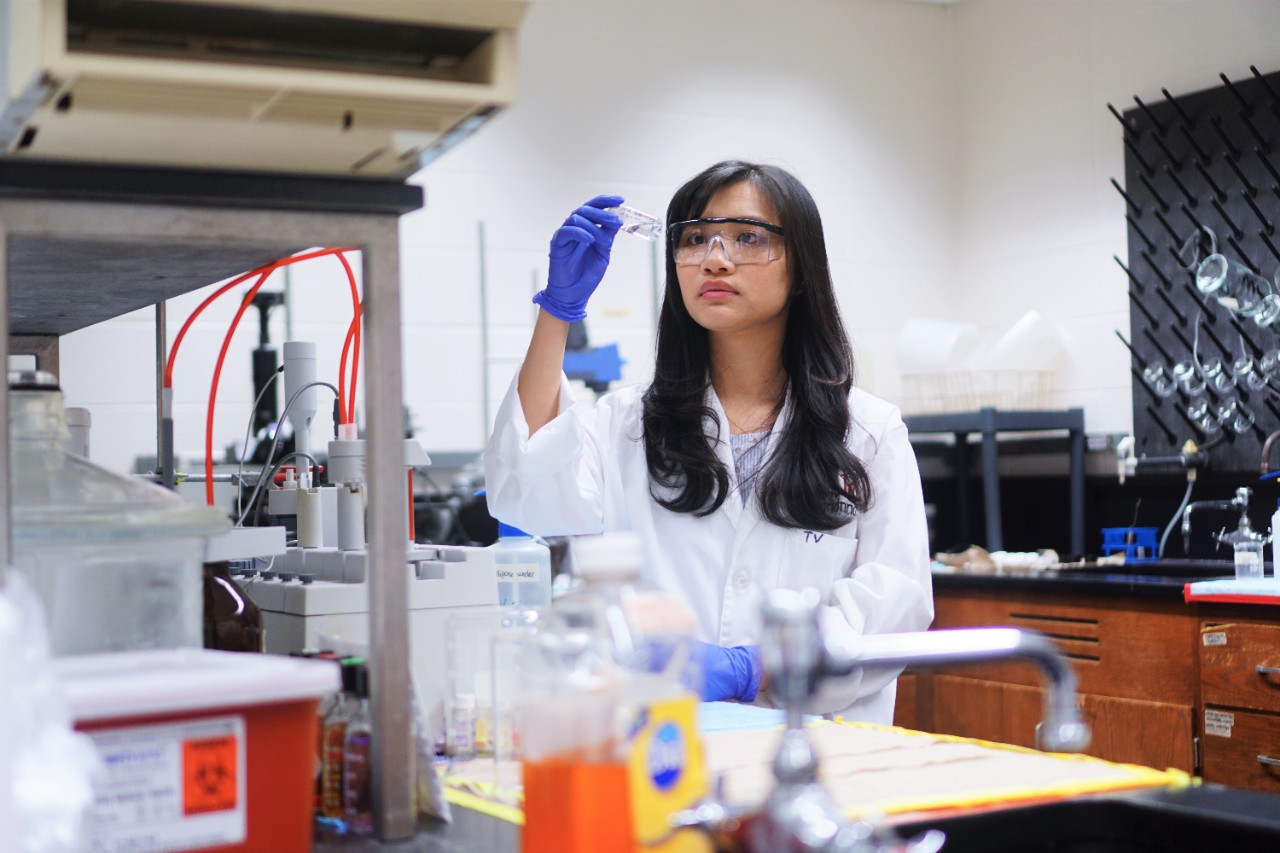
UC researchers collaborate with industry on natural ingredients
The oldest cosmetic sciences program in the country studies ways to modernize consumer products
Cosmetic scientists at the University of Cincinnati are studying ways to replace chemical compounds in personal care products with natural ingredients.

Gerald Kasting, professor of pharmaceutical science, is the lead author on the study of natural ingredients in personal care products. Kasting had a decades long career in the personal care products industry before joining the faculty at UC.
“Claims for ‘sulfate-free’ and ‘natural’ products are two of the driving forces for today’s personal cleansing market,” says Gerald Kasting, professor of pharmaceutical sciences at UC’s James L. Winkle College of Pharmacy.
The college recently received a grant extension of $105,000 from Cincinnati-based consumer goods giant Procter & Gamble Co.(P&G) to study the thickening mechanisms for amino acid-derived cleansers for products like shampoos and shower gels, he says.
For example, when you turn a bottle of shampoo or body wash upside down, the reason it doesn’t automatically come streaming out is due to thickening agents, says co-investigator Trang Vu, a pharmaceutical sciences researcher and doctoral student at the UC college.
These thickening agents, she says, dictates how easily a product is dispensed from its container and how smoothly it spreads on the skin. This helps regulate the amount of product for single use and keep the product from getting into the eyes. “Besides the thickening function, the agents have to be just right so products can foam properly, cleanse properly and don’t dry out the skin, in order to meet manufacturer requirements,” she says.

PhD candidate Vu Trang works under the tutelage of Gerald Kasting in the James L. Winkle College of Pharmacy's Division of Pharmaceutical Science's cosmetic sciences track.
Vu says that although cosmetic science formulators already know how to thicken chemical ingredients, natural ingredients such as those derived from amino acids pose challenges. “The amino acid-derived ingredients being studied at the college are plant-based and their sources are 100% renewable.” Compared to the traditional and well-studied cleansing agents like alkyl sulfates, there is a lag in understanding of how to thicken these natural ingredients effectively, she says.
Cosmetic science formulations for personal care products have very stringent specifications, and “We have to go through all of those aspects to make sure they are safe and perform well for consumers,” says Vu.
According to Kasting, the industry standard for a product to be labeled “natural” is that 50% of its chemistry is derived from natural sources.
The UC pharmacy college, he says, has a two-decade long history of collaborating with P&G on research endeavors: “The support of the cosmetic and personal care industry in one way or the other is why we have a program at UC.”
UC’s cosmetic science degree program is the oldest and largest in the country and was the first to offer a doctorate in cosmetic science.
Featured Image: Vu Trang in her labratory at UC. Photo provided/Trang
Impact Lives Here
The University of Cincinnati is leading public urban universities into a new era of innovation and impact. Our faculty, staff and students are saving lives, changing outcomes and bending the future in our city's direction. Next Lives Here.
Related Stories
Before the medals: The science behind training for freezing mountain air
February 19, 2026
From freezing temperatures to thin mountain air, University of Cincinnati exercise physiologist Christopher Kotarsky, PhD, explained how cold and altitude impact Olympic performance in a recent WLWT-TV/Ch. 5 news report.
Blood Cancer Healing Center realizes vision of comprehensive care
February 19, 2026
With the opening of research laboratories and the UC Osher Wellness Suite and Learning Kitchen, the University of Cincinnati Cancer Center’s Blood Cancer Healing Center has brought its full mission to life as a comprehensive blood cancer hub.
Nursing innovation emerges as critical lever in healthcare transformation
February 18, 2026
Recognizing both the urgency and the opportunity, the University of Cincinnati (UC) College of Nursing is taking deliberate steps to position nurses at the forefront of healthcare transformation. It has created an Innovation Strategic Plan and established a dedicated Industry Advisory Board to forge the academic-industry partnerships essential to accelerating nurse-driven innovation.
